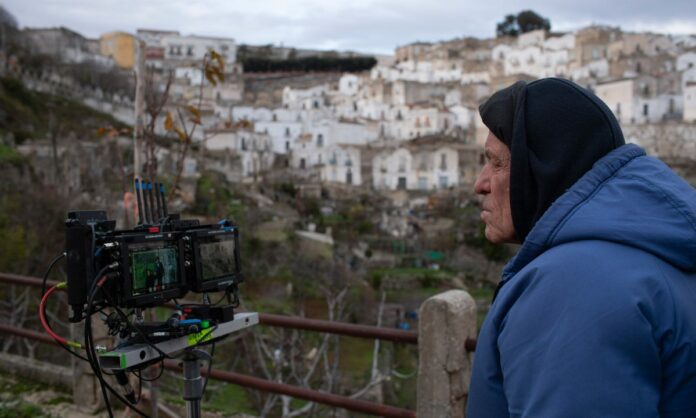Today at the Venice Film Festival today is an important day for the relationship between filmmaking and the Apulian territory. Ti mangio il cuore, by Apulian director Pippo Mezzapesa, is presented in competition in the Orizzonti Section. The film, based on the book-investigation of the same name by Carlo Bonini and Giuliano Foschini published by Giangiacomo Feltrinelli Editore, mixes the gangster genre with a great and tragic love story. The film sets the debute of Italian popstar stars Elodie and stars Francesco Patané. The cast also includes Lidia Vitale, Francesco Di Leva, Tommaso Ragno, Giovanni Trombetta, Letizia Cartolaro, Michele Placido and Brenno Placido. It is a story set in the Gargano, and Apulia Film Commission and the Apulia Region were decisive partners. Ascoli Satriano, Castelluccio Dei Sauri, Margherita Di Savoia, Foggia, Carpino, Manfredonia, Vieste, Cagnano Varano and Barletta are the Apulian locations where the film was made. Ti mangio il cuore is produced by Indigo Film with Rai Cinema, with the contribution of the Apulia Film Fund of the Apulia Film Commission and the Apulia Region, using resources from the 2014/2020 Puglia FESR-FSE ROP. Ti mangio il cuore, which will open in theaters Sept. 22, is one of the two films on the official calendar of the Venice Film Festival and made in Puglia, testifying the great vitality achieved by productions in the Apulian territory under the impetus of the Apulia Film Commission and the Apulia Region. The other is Padre Pio, by Abel Ferrara, starring Shia Lebeuf in the role of the friar of Pietralcina, out of competition at Venice Days. The film is co-produced by Italian company Interlinea Film with Germany’s Maze (DE). Executive production is provided by Francesco Lopez’s Apulian Oz Film, an Italian production team with a high number of Apulian professionals working in all departments. The film has been made with the support of the Apulia Film Commission, which also pushed for the production to be set in the real places of the story, from San Marco La Catola and the Pulsano Abbey, to Monte Sant’Angelo, on the Gargano, in whose territory there are two UNESCO Sites.
Lisa Thiene

